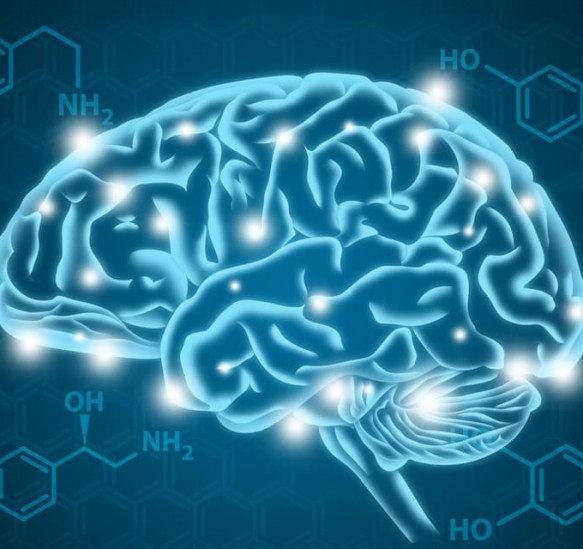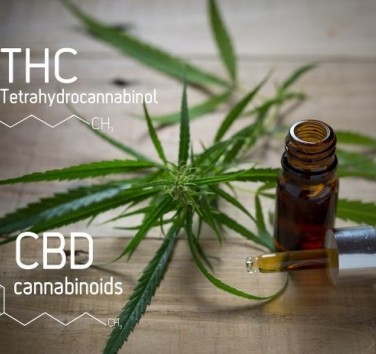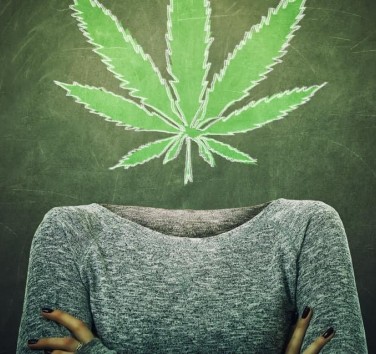According to scientific research, CBD is indeed capable of promoting the production of dopamine in the brain. Even if the research on this subject is far from being completed, it would seem that CBD has a positive action on what is more commonly known as the "happiness hormone".
Although CBD is not considered an addictive substance, it would still be responsible for an increase in dopamine, the hormone responsible for feelings of happiness and pleasure. So, could CBD cause a form of psychological addiction? How does CBD really work on your brain? What is the difference between CBD and THC consumption? What are the long-term effects of CBD? All the answers to these questions can be found in this article dedicated to CBD, the brain, and dopamine production.

What is dopamine?
To fully understand how CBD affects your brain, it's important to understand the role of dopamine in your body. Often referred to as the "happy hormone," dopamine is a hormone that directly affects feelings of pleasure and reward. For example, dopamine can be released during a meal, before going to sleep, during sex, etc. The brain equates all of these positive actions as a reward.
The problem is that certain substances, such as alcohol or hard drugs, can cause a sudden increase in this dopamine level for no reason. Even if you're not doing anything in particular, you may feel a sense of well-being and mild satisfaction when you use them. At the time, it's very pleasant. But in the long run, it reduces your ability to produce dopamine naturally, and causes you to use more to get that good feeling back. So what about CBD, this molecule that is neither psychoactive nor addictive? Does it act in the same way on the production of dopamine?
How does CBD act on the brain?
The complexity of the brain is such that scientists are still divided on the issue of CBD and dopamine. One thing is for sure, the studies conducted so far have nevertheless highlighted the obvious link between CBD and the endocannabinoid system. In this way, CBD would act on many neurotransmitters, not just the happiness hormone in particular.
Even if its role in the process of dopamine production is still unclear, CBD acts on the production of this hormone, it is a fact. It's hard to know how and why, but CBD does enhance dopamine production. Thus, it promotes the feeling of happiness, pleasure and satisfaction. With this conclusion, you may be wondering: What is the difference between CBD and drugs that increase dopamine production and make you addicted? Indeed, millions of people around the world consume CBD, often for therapeutic or medical purposes. And yet, they do not suffer from any form of CBD addiction. Why not? Simply because CBD does not act like a drug.
What is the difference with THC?
Scientific studies are clear on this subject: short-term drug use increases the level of dopamine, but affects it drastically in the long term. This is why people who use cocaine, for example, always want more and cannot do without it to feel happy. The brain becomes dependent on these drugs to release dopamine, and a vicious cycle sets in.
CBD (cannabidiol), on the other hand, has no addictive effect on the brain. Even if the CBD molecule temporarily increases your dopamine level, it does not affect it in the long term. It doesn't make you addicted or prevent your brain from producing dopamine without it. Although THC (tetrahydrocannabinol) is considered a psychoactive and unhealthy drug, it is also not considered addictive, unlike alcohol.

What are the effects of CBD in the long term?
As you can see, CBD does not have any harmful effects on the natural production of dopamine, even in the long term. What you need to remember is that most substances considered drugs slow down the production of cannabinoids, because your brain gets used to receiving them from an external source, without doing anything. Over the long term, the damage can be irreversible. But with hemp, studies have shown that after a certain period of time, the dopamine neurotransmitters return to normal. By comparing a group of former cannabis users with a group of non-users, researchers even found that there was no significant difference in their dopamine receptors.
CBD, a molecule with powerful therapeutic properties
Beyond its relationship with dopamine production, CBD acts in multiple ways on your brain. By acting on TRPV-1 receptors, it helps regulate body temperature, relieve inflammation and pain. Widely known for its positive action on chronic pain, CBD is also highly valued for its anti-epileptic and anti-anxiety properties. In fact, people suffering from epilepsy are increasingly using CBD to reduce the frequency and intensity of spasmodic disorders. In addition, CBD has antioxidant, analgesic, and neuroprotective properties that enhance its enormous therapeutic potential. The bottom line is that CBD is a natural substance that positively affects many receptors in our brain and body, and has yet to reveal the full extent of its powers.
Can taking CBD cause side effects?
To date, there are no known side effects from taking CBD. Some people have already noticed a feeling of drowsiness or nausea, but these side effects are often related to the intake of another drug or a pathology that is not related to CBD. You can consume this natural substance without any danger to your health. If in doubt, don't hesitate to ask your doctor for advice on the best dosage of CBD for you.
Are the risks of addiction to CBD really non-existent?
Although CBD does increase dopamine levels for a while, your brain does not become accustomed to the substance. Many people use CBD on a daily basis to relieve chronic pain, stress and anxiety issues or sleep disorders. And yet, they are able to quit overnight without experiencing withdrawal. Again, CBD is not a drug, but rather a natural regulator for your body.










